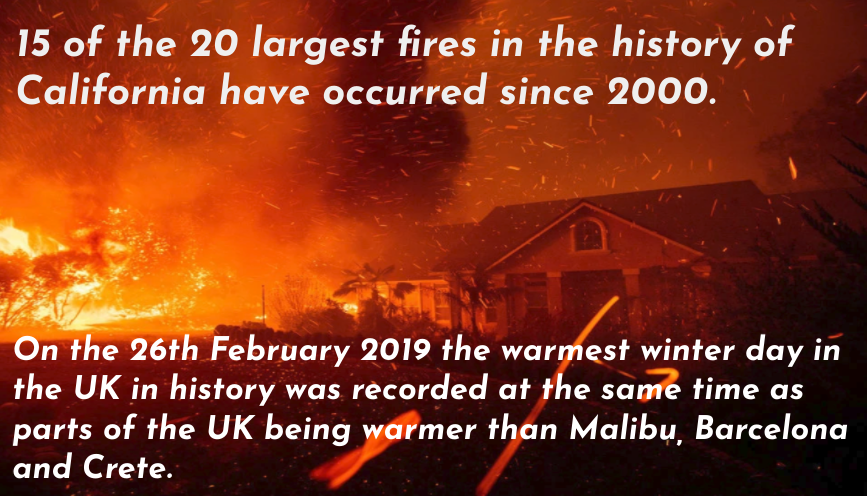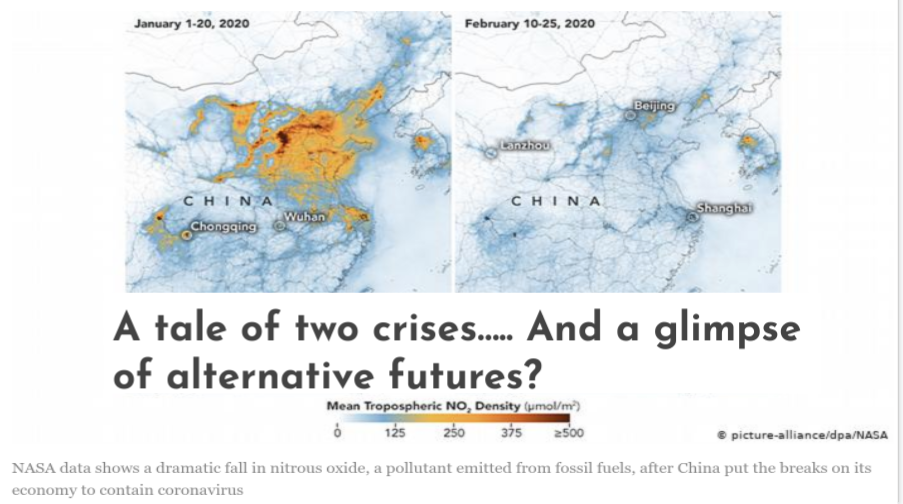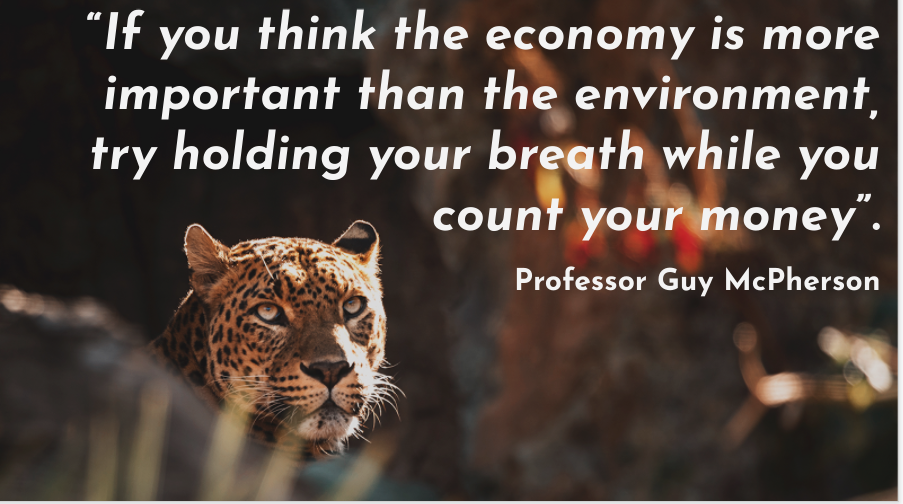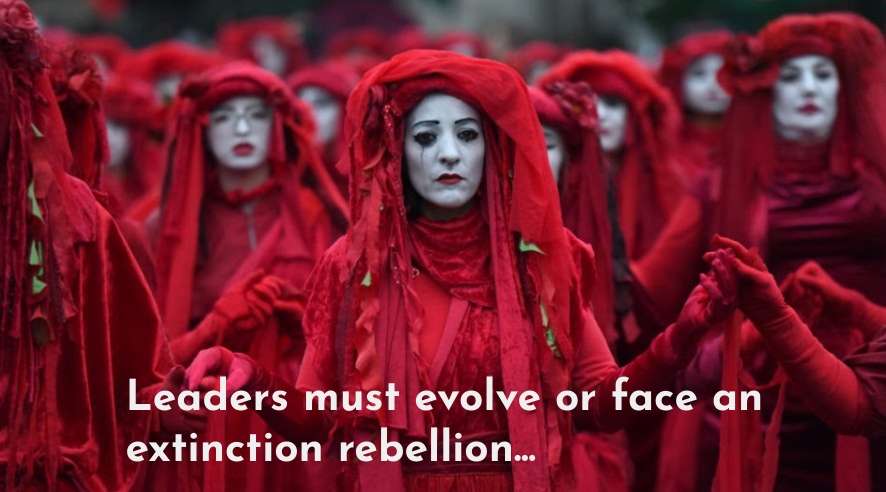“It’s bad, but we can fix it.” Creating a Sustainability Culture to Meet the Climate Crisis.

“It’s bad, but we can fix it.” The words of sustainability scientist and Lund University Professor Kimberly Nicholas. The optimist in me aligns to this view, but decades of experience in change management is less optimistic. The old phrase hands up who wants change (everyone), hands up who wants to change (nobody) comes to mind. The way I see it, time is running out for humans unless we change radically and faster. That’s not something I ever expected to think. I’m less concerned about the planet itself because the planet will go on, but for humans it’s far less certain. The scenarios arising from the climate crisis paint a bleak picture. Food shortages, sea levels rising, increasingly extreme weather, famine, species extinction and so on. In my view as this plays out it will increase the likelihood of civil unrest and war unless we change faster and more radically. Do I think we can do it? I do. As Professor Nicholas stated, we can fix it, but experience would suggest we may need to be forced to.
People say change is hard, but it’s actually much harder than that. Take the Covid 19 pandemic. I have personal experience of working with managers who in some cases had to be faced with a choice between possible death, or moving their teams to remote working and online meetings. That sounds like a joke but it’s what happened. To be fair unless you’re using Google Meet that’s actually a reasonable quandary based on my experience of some of the alternatives. But seriously, process that. The internet didn’t arrive in 2020 and yet it literally required a life and death scenario and threat of prosecution for some people to make a behavioural change that made total business sense years before using tools that were established and widely available years before. The challenge ahead isn’t a scientific or technological one. We have the tools to fix this. The question is whether we are prepared to live, work and learn differently if we don’t feel like it. The jury is out on that but we won’t have to wait long to discover the outcome because time is not on our side.
Some of you may recall the work of the late Douglas Adams and his Hitchhiker’s Guide to the Galaxy series. In the series there was a super computer called Deep Thought who was approached by the finest minds in the universe to answer the ultimate question, that being the answer to life, the universe and everything. After many years have passed they return for the answer and Deep Thought awkwardly tells them they won’t like it. To the bemusement and profound disappointment of the minds who had waited generations for the ultimate answer, it turned out to be 42. This was generally regarded to be inconvenient in the scale of what a let down it was. The solutions to the climate crisis will feel much the same in that we won’t like them, they won’t be what we want or expect, but they are what they are. We will either create a more sustainable world for future generations, or there won’t be one. It’s that stark.
Simon Sinek once said people don’t buy what you do, they buy why you do it. I think that when it comes to the climate crisis this applies as much to the world of education as it does to the business world and increasingly the why will need to relate to how the purpose of the organisation supports global collective human challenges. We are after all on the same rock in space, none of us are getting off it any time soon, and so we have a collective responsibility to solve our global challenges together no matter who you are or what you do.
So far in 2021 we have seen yet more records set for extreme weather around the world from wildfires to extreme heat, flooding and so on, and these events are accelerating in frequency. The work of the IPCC (Intergovernmental Panel on Climate Change) has been recognising this for years. The United Nations climate science organisation established in the 80s has over 190 member countries and provides independent scientific advice on climate change with a set of recommendations and scenarios for Governments to consider (personally I think it should be considered by Governing bodies of public sector organisations also as a standing item). The work of the IPCC is objective with an academically rigorous process behind it built by over 230 internationally respected scientists nominated by IPCC member Governments from across the globe. They are all leading Earth and climate science experts. Their research covers thousands of citations published over years of work from leading scientists.
The collective work of the IPCC doesn’t tell Governments what to do, rather it provides risk and options appraisals for reducing the impact of human generated climate change. The summary of their latest research is bad but we can fix it, although our time to do so is coming to an end. To meet this challenge as we run out of road we will collectively need to create more agile working and learning communities equipped with the confidence and skills to live, work and learn differently. We can do it, but the challenge is big.
Small changes add up. This is how we will realise a better collective, sustainable future. In our company, C-Learning, we are constantly reviewing how we work and learning along the way. We don’t have all the answers and we are likely going to make some mistakes as we reimagine how we do things but we are focused forensically on our mission to create a smarter and more sustainable planet.
Right now we are a remote team with no fixed office locations because in the digital age it makes no sense and also enables our team to recruit the best talents from a global network. It also means we travel less, reducing our carbon footprint. Whilst there are some aspects to this way of working that mean we see each other less in person, communication is actually better than if we were all in a shared location. The reason for that is culture. When you’re in a digital space you have no choice but to communicate more often than might otherwise be the case if you were in a large building. I’ve had many roles in the past where people working in the same building rarely if ever met and in some cases had never collaborated together. It’s a myth that locality equates to team building. That thinking is from the last century.
Technology can also play a part here. We use Google Workspace as a productivity platform and their cloud systems have been carbon neutral for a long time. We use chromebooks that have unrivalled sustainability credentials when set against any computing device because they use 65-85% less energy than comparators, last longer (so less impact on landfill), enable untethered working (so support a more sustainable approach to reducing travel) and have less components in them that are harmful to the environment. Whether you use Microsoft technology or Google, a chromebook should be the choice for anyone who is aligned to actions to address climate change.
Culturally leaders need to take a hard look at how their teams are working and ask some difficult questions. Do you need the physical spaces you have and if you do, how might they be re-imagined? Should the default position be for meetings to be online and if not, why? Should your team have the autonomy to decide where and when they work (where practical)? If not, why?
As someone on Twitter suggested, when it comes to the climate crisis we are sort of at the point where Wile E Coyote runs off the cliff but hasn’t looked down yet. On the positive side at least recently we have seen less debate about whether people believe in climate change and more about whether people understand it. This is critical because the crisis is accelerating. For example 15 of 20 of the largest fires in the history of California have happened since the year 2000. Closer to home in the UK it’s happening also with the warmest Winter day in UK history recorded in 2019 and I doubt that record will last long.

Even closer to home for me, my village has been flooded more in the last 3 years than in the last 15. The Vienna University of Technology claims its database is the most complete on European flooding so far, involving research institutions in 24 European countries including the University of Bath and University of Liverpool. Researchers analysed records from 3,738 river flood measurement stations across Europe over five decades. Northern England and southern Scotland have seen an increase in flooding of more than 11% in recent years and this trend is accelerating.
Back on the 23rd September 2014 former President Barack Obama said, referencing an American Governor, that we are the first generation to feel the impact of climate change and the last to be able to do anything about it. Years later, the problems are getting bigger and the changes we are making are nowhere close to being fit for purpose.
The Living Planet report published by the Zoological Society of London has shown that between 1970 and 2014 some 60% of mammals, fish, birds and reptiles declined as the impact of rapid climate change shapes the world around us in a way that is not sustainable for the very ecosystems on which human life depends. For insurers, the increasing risks associated with flooding, heatwaves creating fires and wider are now starting to impact on every aspect of our commercial and personal world. If we don’t implement radical changes the commercial cost to our lives will be immense as well as the environmental and health ones, but if we do take steps there is a new industrial revolution emerging that could create wealth and prosperity unlike anything we have seen, and we can make the world a better place whilst doing it.

I will never forget seeing the NASA satellite data during the early months of the Covid 19 pandemic that revealed the extent to which harmful emissions over China had fallen as the country closed down so much of its economy. This colossal, coal-powered economy had slashed emissions by 25%, according to numbers crunched by Lauri Myllyvirta at the University of Helsinki’s Centre for Research on Energy and Clean Air. The air was cleared of nitrous oxide emissions almost overnight. That’s remarkable. It was a glimpse into a possible alternative future. A better one, and one that was only glimpsed because humans were forced to take radical action. We need to hold onto that, because it’s needed again and this time there is even more at stake because the impact to human life from the climate crisis will eclipse the Covid 19 pandemic in time unless we do.

Research undertaken by Stanford University has suggested that the cost to the US along from the climate crisis could be well over $1 trillion. A common misinterpretation of the cause of climate change is the growing global population but the evidence would suggest this is not entirely true, the issue is less about the size of our global population and more about our consumption behaviours and the impact those have on the world we depend on. We need to radically reduce carbon emissions at a much faster rate. Think of pandemic level reducations each year because that is likely what’s needed.
The trends shaping our world are accelerating just as climate change is and what this means for our curious world of organisations is that the ability to adapt is becoming more and more essential because disruption isn’t a temporary phenomenon. The severity of it might ebb and flow, but make no mistake, it’s a constant. Those organisations with an innovation culture enabled by people at all levels within it will do well. Those organisations with top down leadership structures, complex bureaucracies and a reluctance to change will suffer, and suffer with increasing severity as climate related disruption continues to amplify.
The concept of the ‘office’ is undergoing the same transformation as the high street shop. If your estates strategy isn’t cognisant of this then it’s worth remembering that you can’t uninvent the internet, and forcing people to travel to an office to perform an activity they could do anywhere just because you want them to means you’re part of the problem and sooner or later your Board will find another solution. What got us to this point in our evolution won’t be what secures our future and working patterns are an example of this. People used to move to find jobs but now jobs move to find people. If we get this right then we can accelerate some of our activities that will help climate change but there are many powerful forces that will work against it. This is why the solution won’t come from those in power. It will come from the power of the many, not the few. Best selling author and all round brilliant human I’m proud to know, David Price OBE, calls this ‘The Power of US’ which also happens to be the title of his latest book. If you haven’t read it, grab a copy. It’s not only a superb engaging, provocative yet entertaining read but one that I believe provides powerful signposts to how we might collectively meet the shared challenges we face. If you’re a leader you can empower your people to be the change that the world will demand or face your very own extinction rebellion. The first warning sign you’ll see is a talent drain. If your brightest people are leaving then your demise is only a matter of time, so it’s enlightened self interest to get this right.
My contention is that sustainability should now be in the DNA of any policy your organisation has, not just a paragraph in the one that relates to your estate. I still meet Directors of Estates who when challenged in this context mumble something about paper recycling bins, which is a bit like having a mop on the Titanic.

Leaders have a critical role to play in this, especially serving a younger demographic such as in education. Younger people are mobilising and they are not burdened by the dogma of the past. Education can be in the vanguard of leadership in the context of sustainability. The way it can do it is to co-create its products and services with the community it serves. In the post compulsory education sector I still rarely see the way colleges and universities work co-created with the students they serve. This is bizarre to a business like mine where every product and service we have launched since I have been part of the team (and likely before) has been produced in this way. It means we harness the power and wisdom of the crowds (to use well articulated concepts developed by American Journalist and author James Surowiecki). This approach works. If the average age in your Boardroom is over 35 yet the average age of your clients isn’t, then you have a problem. Back in 1958 the US Defence Education Act resulted in the average age of people in the control room of the Apollo missions being 28. It transformed their capabilities as they looked at systems and processes very differently. It is the next generation who will see the worst impacts of climate change and our best approach for managing this crisis will come from co-creating it with them. Everyone should get a Greta Thunberg on their Board.
There are many actions we can take now that can help. Focusing on technology for a moment, has your organisation had an audit of the sustainability of the IT estate? If not, get one, but make it a requirement that it’s vendor agnostic or all you’ll end up with is a report saying buy our tech. The reason for doing this is because despite being immersed in the tech sector I rarely see IT strategies or equivalents with sustainability at the core. Examples of this might be mandating cloud first when it comes to servers. This makes sense because cloud based servers, whilst private and secure to the end user, are a shared resource in terms of their structure meaning the cloud computing data centre is operating at optimum efficiency. An on site server never can. If your IT team is telling you differently, you need a different IT team. Research funded by Google and carried out by Lawrence Berkeley National Laboratory in collaboration with Northwestern University demonstrated that transitioning frequently used on premise applications to the cloud cut energy consumption by 87%. To quote a line from The Mandalorian, it is the way.
Some indicative questions for leaders to ask.
- Do we have a solid understanding of the digital skills of our people? Have we audited this to provide an ‘as is’ evidence base on which to build a preferred future ‘to be’ model?
- Do we have a solid understanding of the culture of our organisation so we can assess how empowered people are when it comes to things like innovation? Have we got solid evidence of this which can be used for benchmarking and planning purposes? If not, that fine chap I mentioned earlier David Price OBE has set up a new agency focused on this and you can check out their work via www.powerofusagency.com
- Do we have HR policies and procedures aligned to progressive practice benchmarked against the best in the world, not just in our sector?
- Are our processes administratively driven, or strategy led?
- What are the environmental credentials of our technology estate?
- Have we mandated a cloud first approach?
There are many more questions but you get the point. Get it right and irrespective of what personal preferences are for systems and processes you will be moving in the right direction but never underestimate how difficult change can be for those who feel safer sticking to what they know. There is no stigma in this. We are all afraid of things we don’t know or understand. In terms of evolution it’s what kept us alive, so we are all on that spectrum, but with the right environment and the right support we can all make a difference.
I’ve said at various conferences in recent years that you’re not stuck in traffic, you are traffic. The solution is with us, not others. That’s why it’s hard but that’s the deal. I believe the future of our learning and working spaces are community driven, focused on people and the planet, and when we travel it will be with specific intent having explored alternatives for more sustainable ways of doing it first. If we take a hard, honest look at ourselves and how we are living and what steps we can take to make a positive change, the challenge will be hard but just like going on a diet (as I am right now), we can do it.
The climate crisis is often communicated as a problem for our planet but it’s not true to say the future of our planet depends on it. The planet will be just fine, it’s our future as humans, along with so many other species, that depends on it. On that point, as Australian Politician Bob Brown put it, “The future will be sustainable, or not at all.”
Jamie Smith, Executive Chairman of C-Learning











Responses